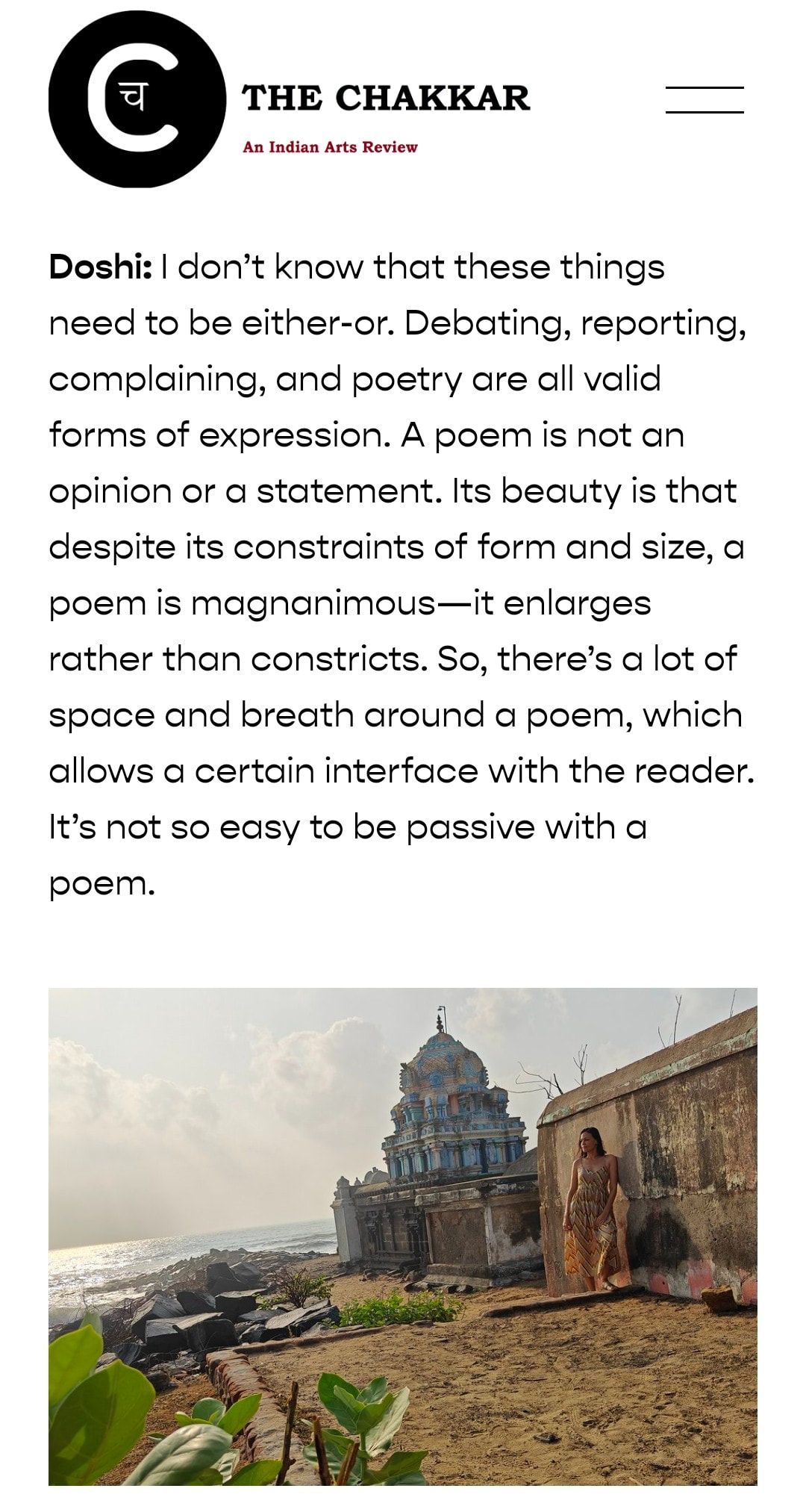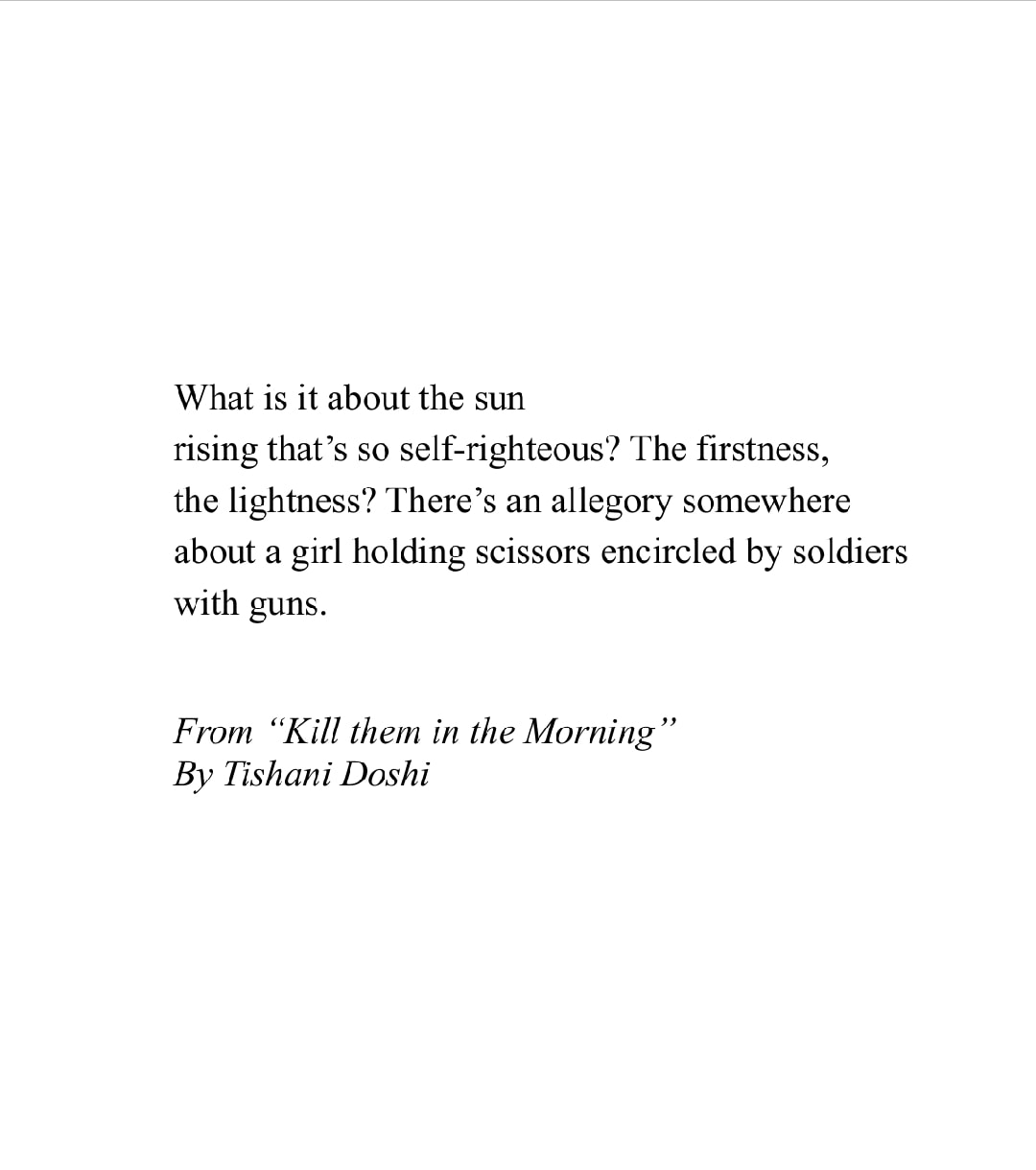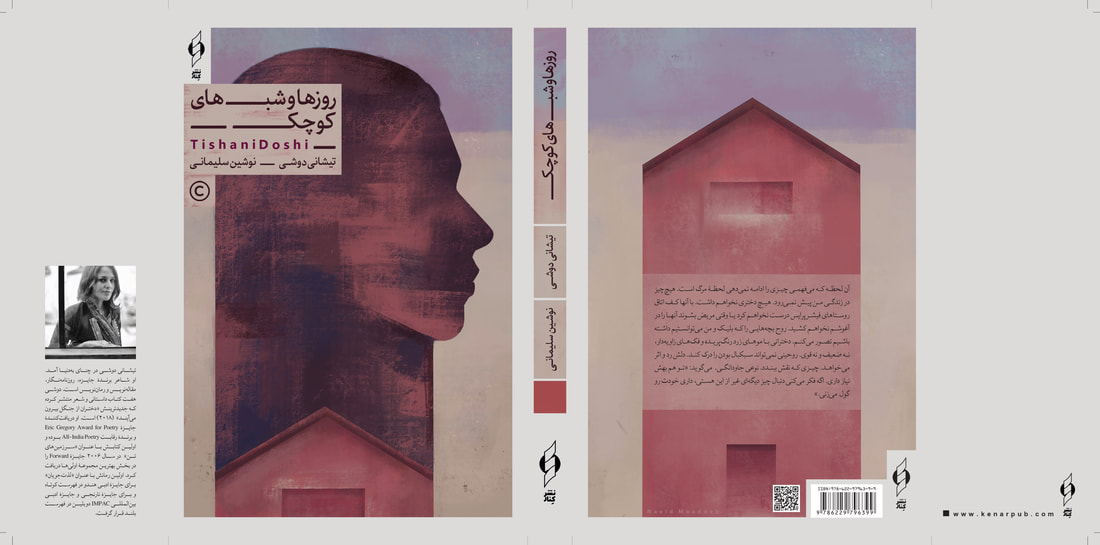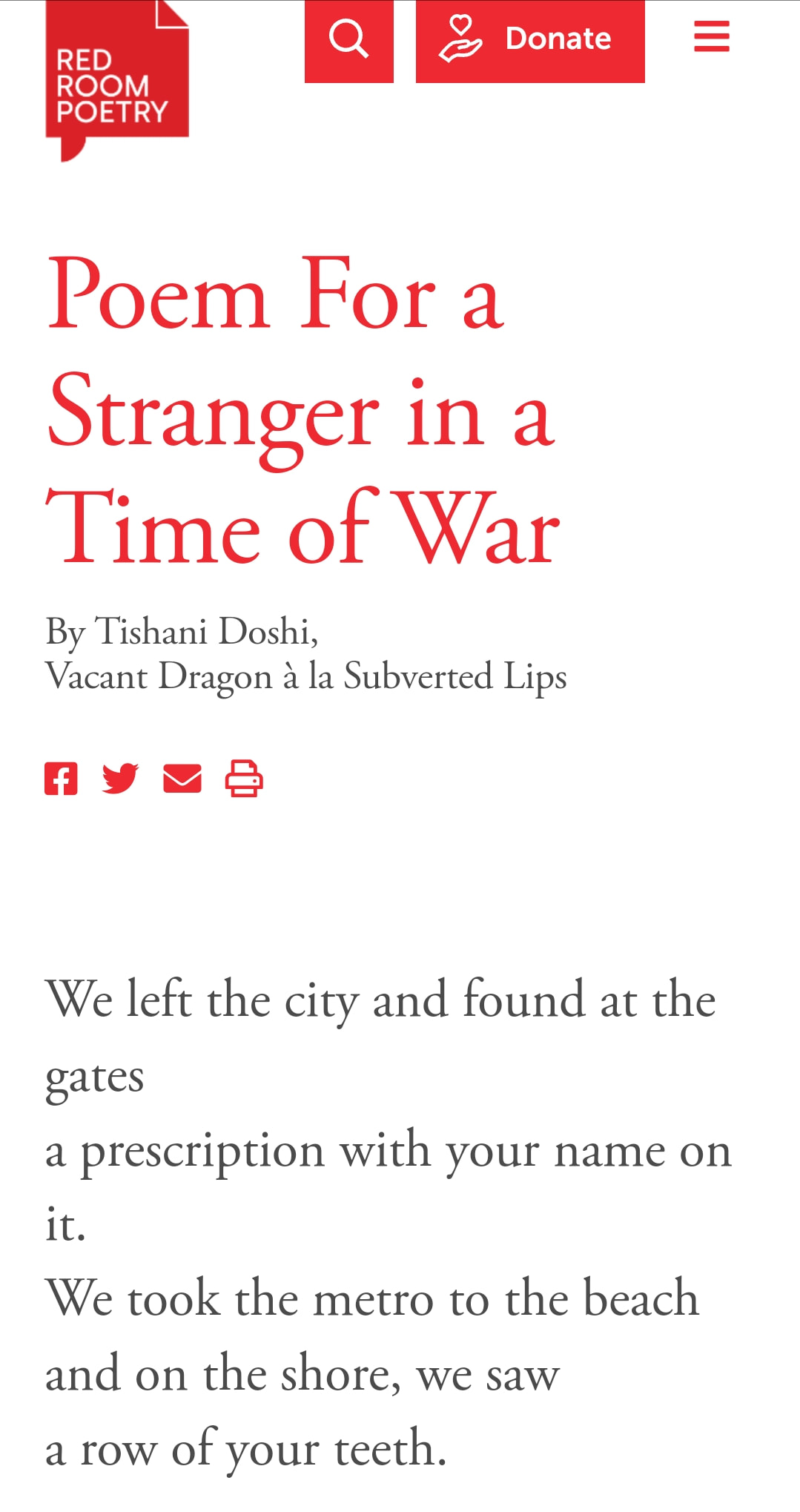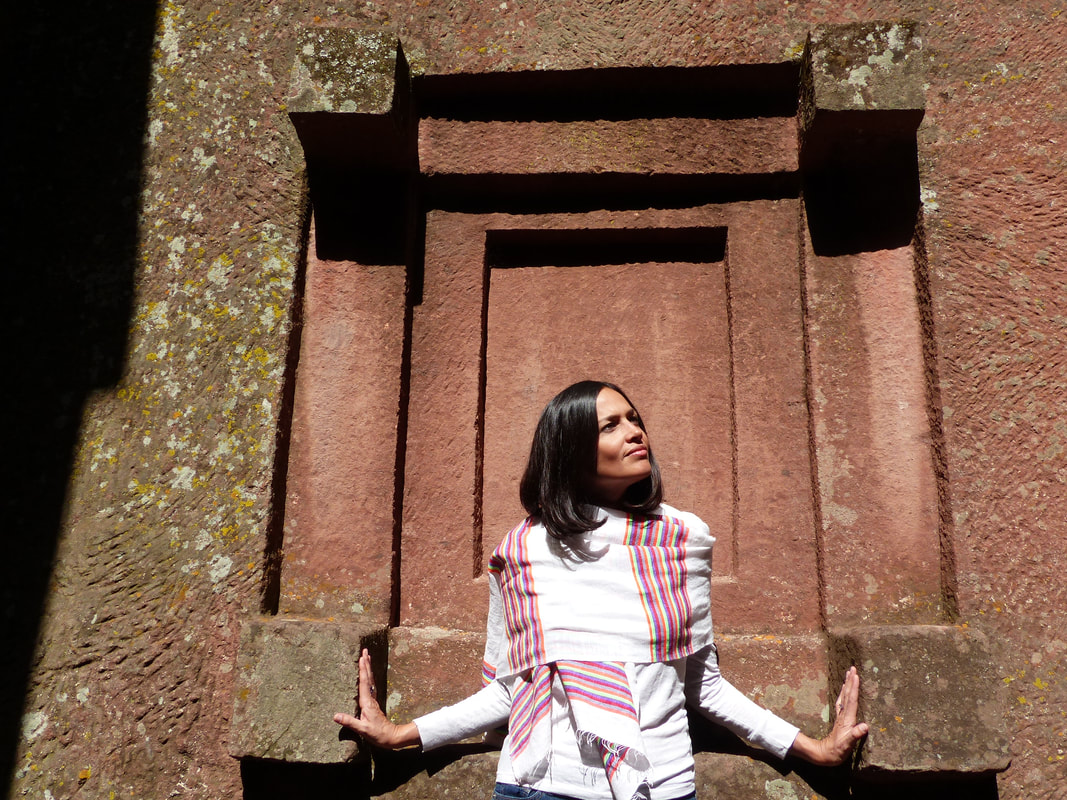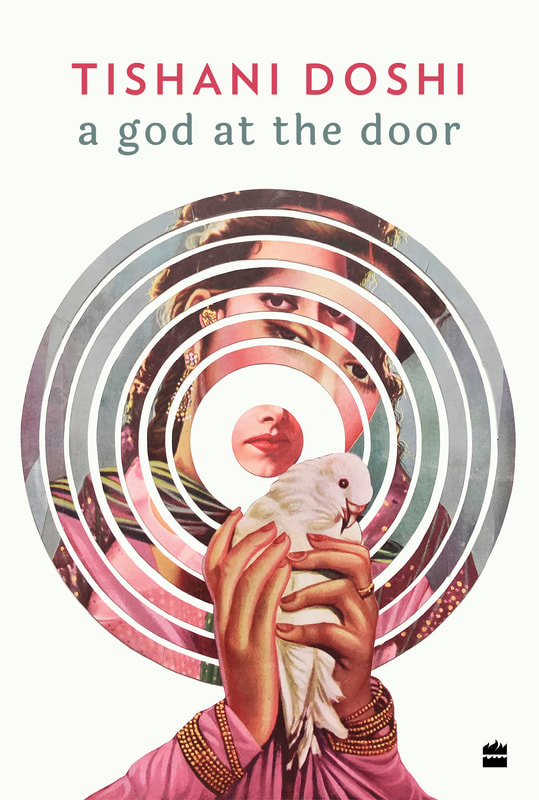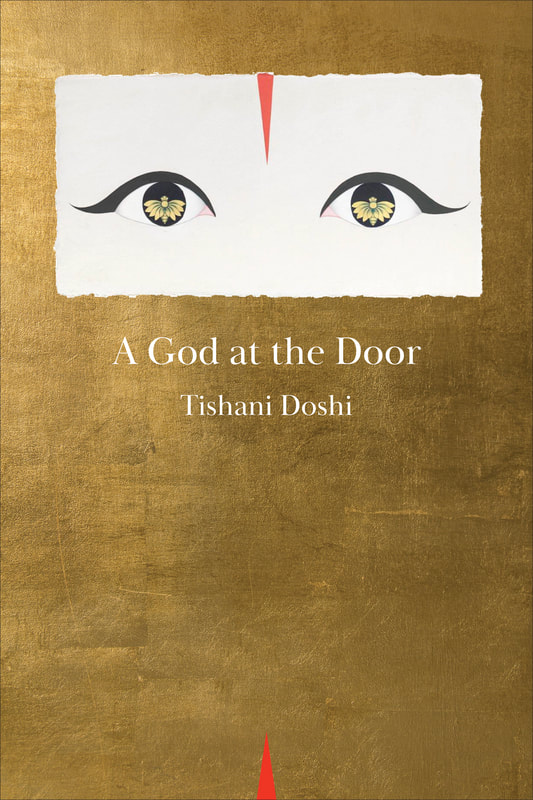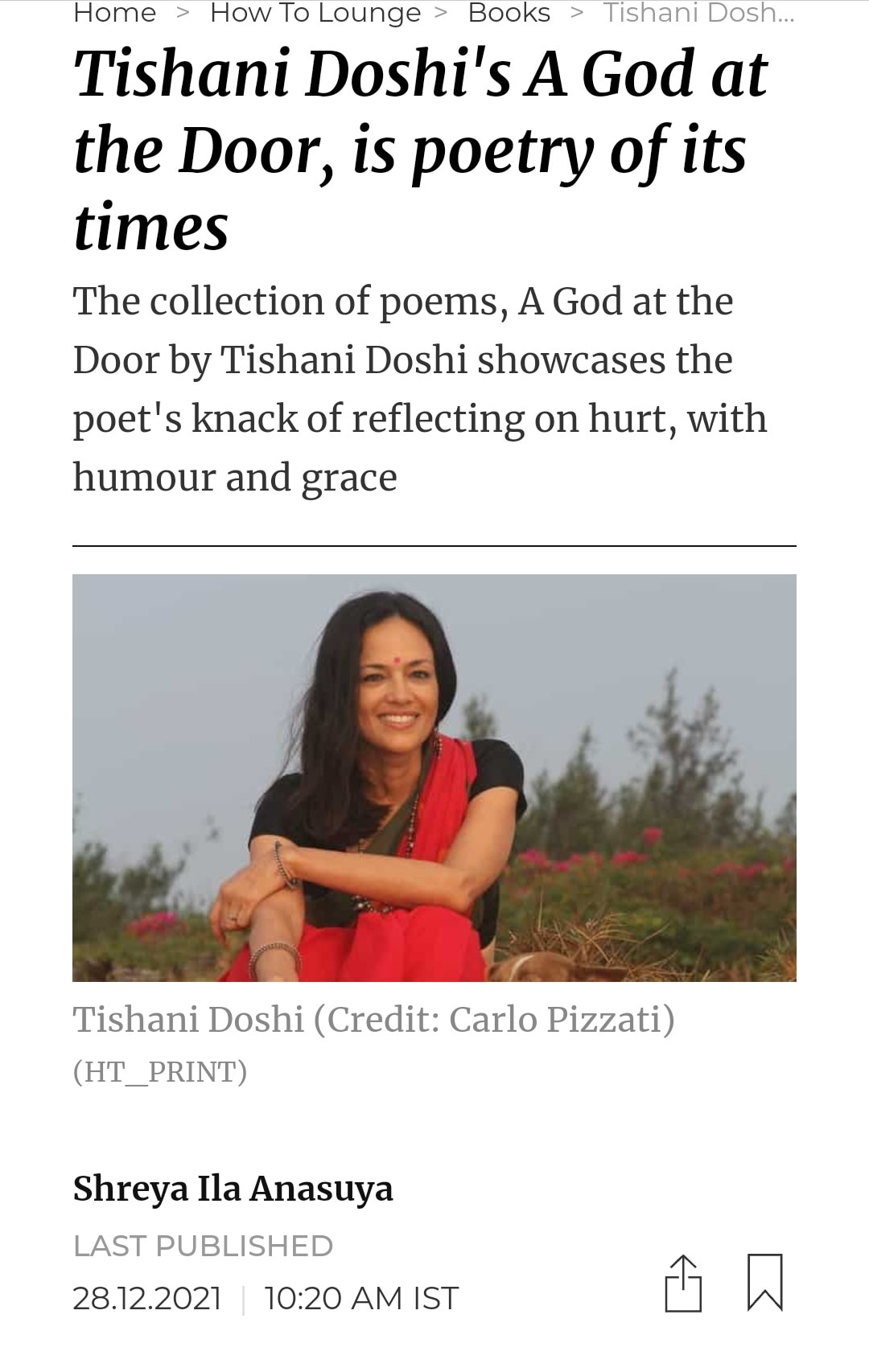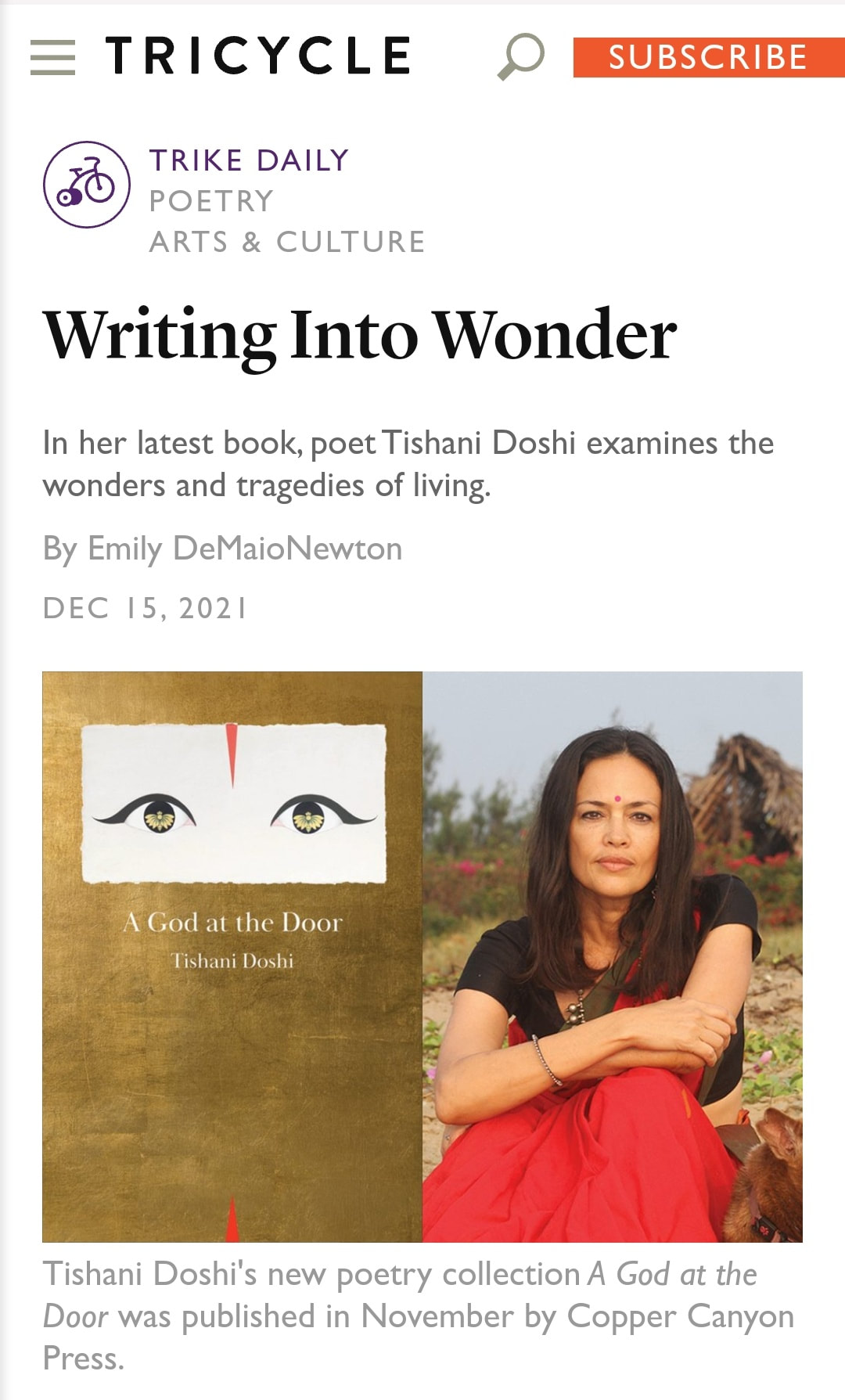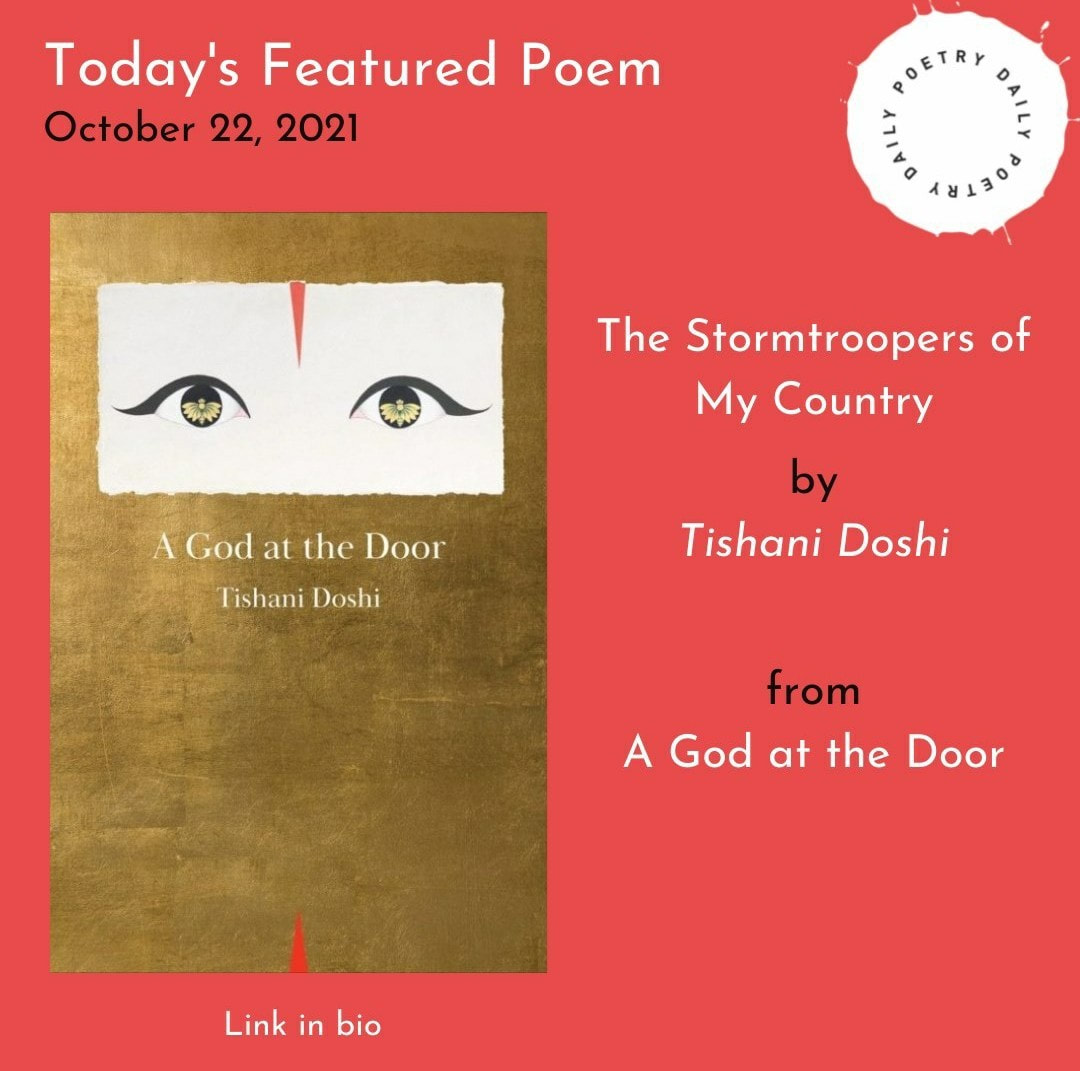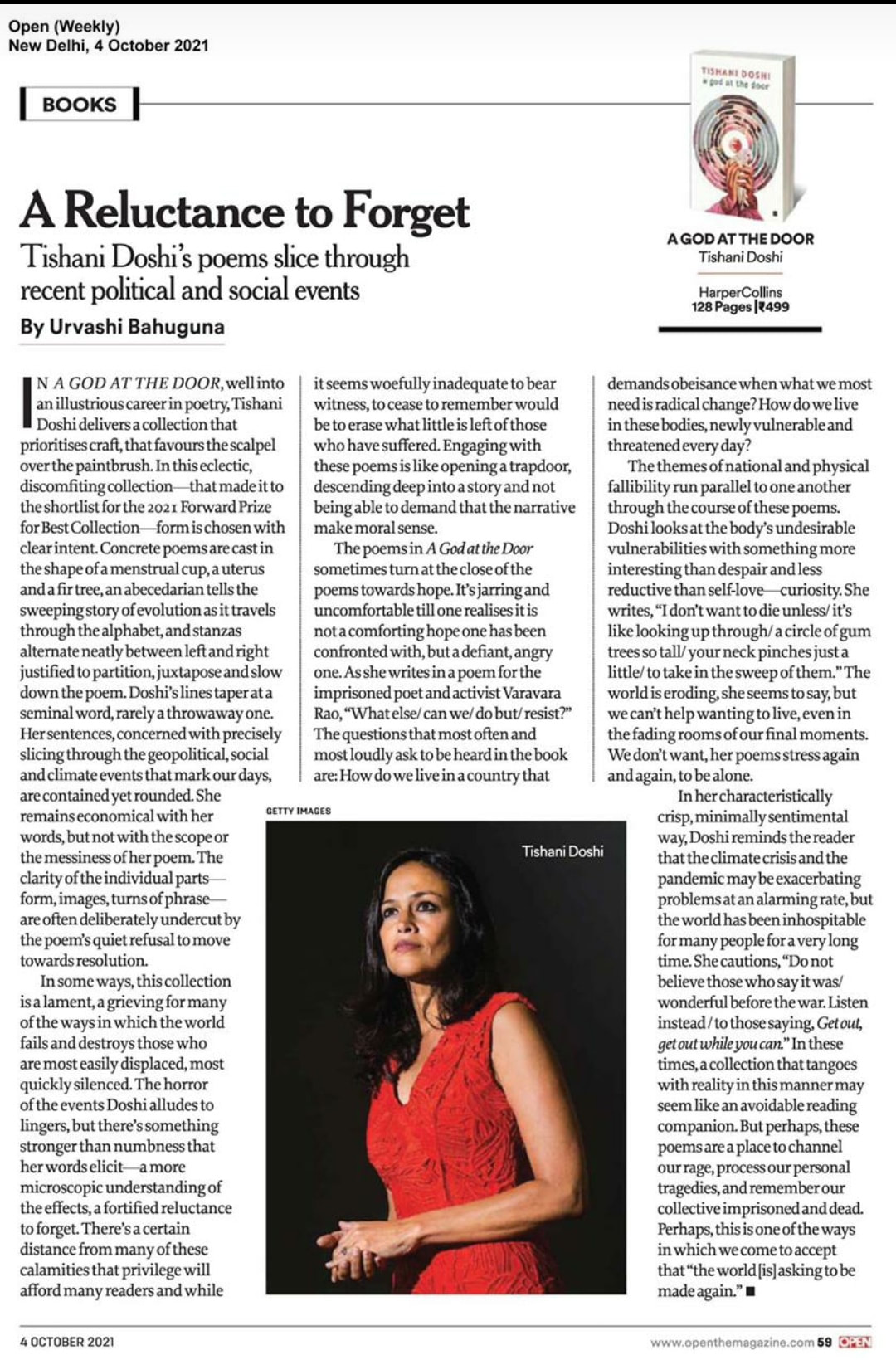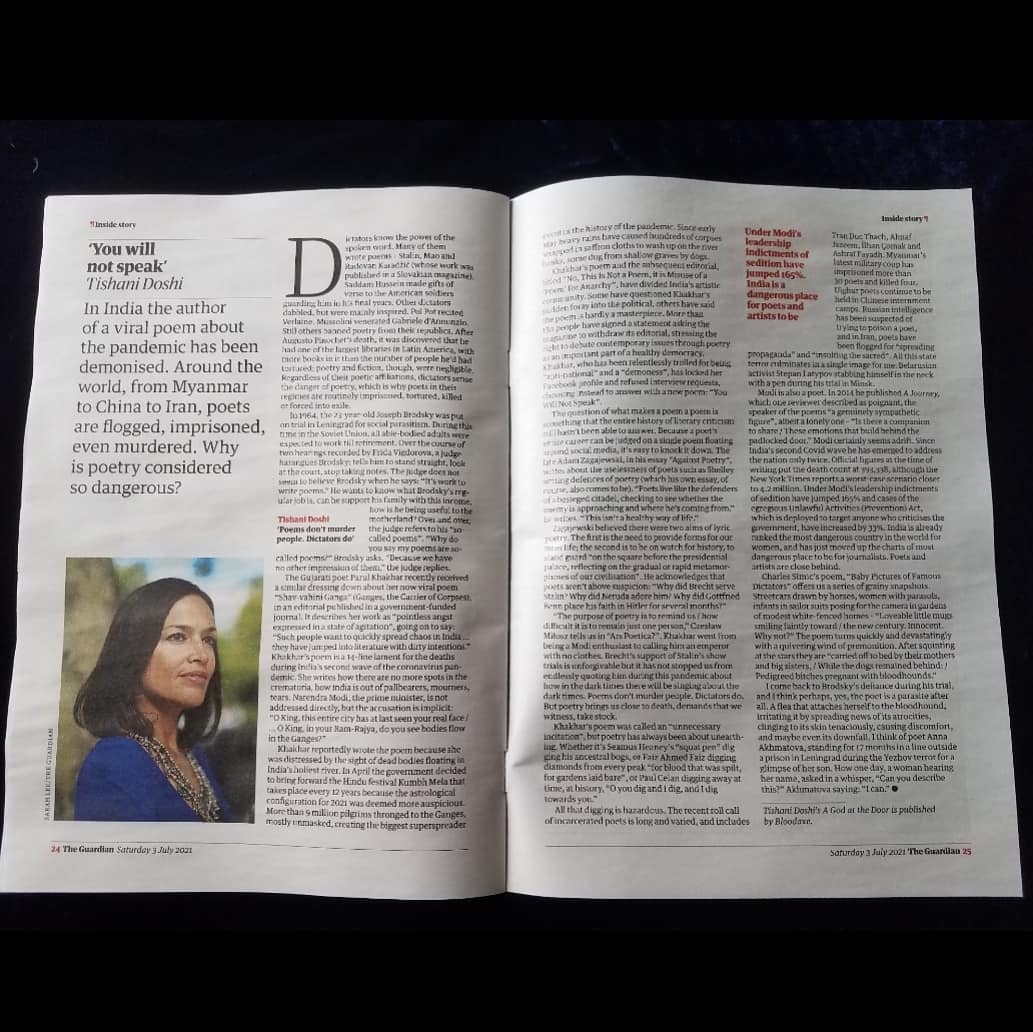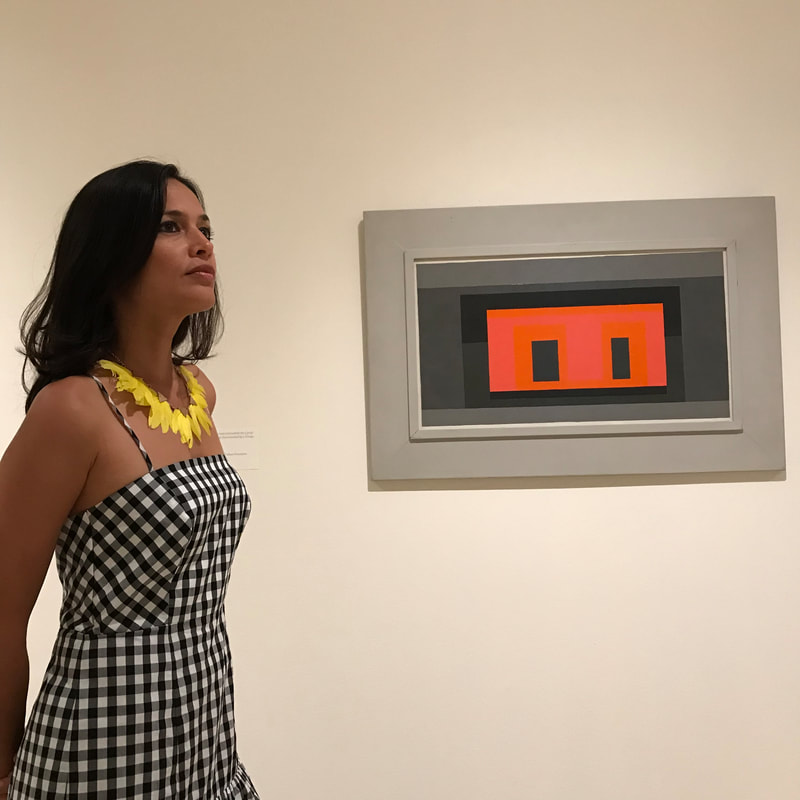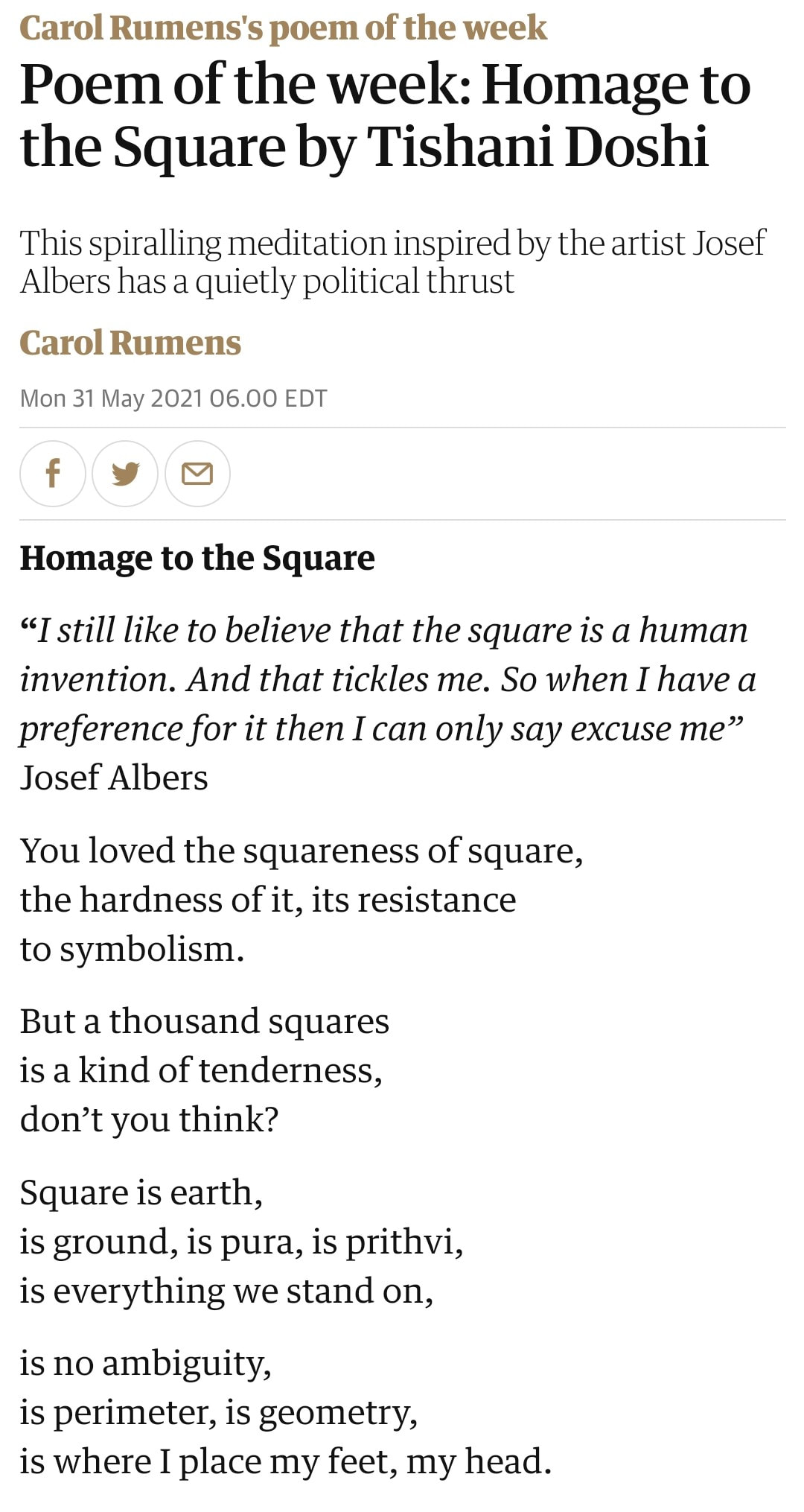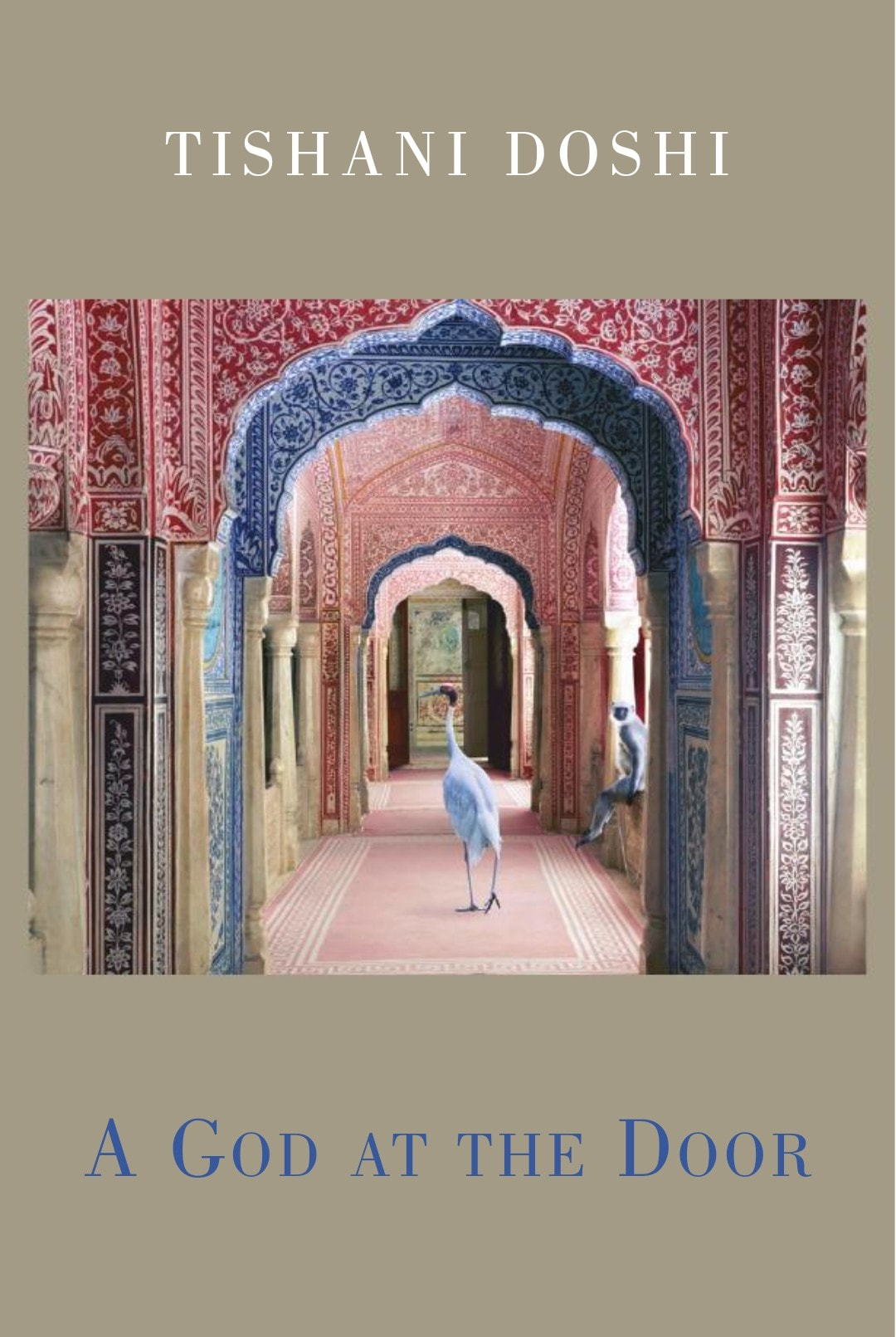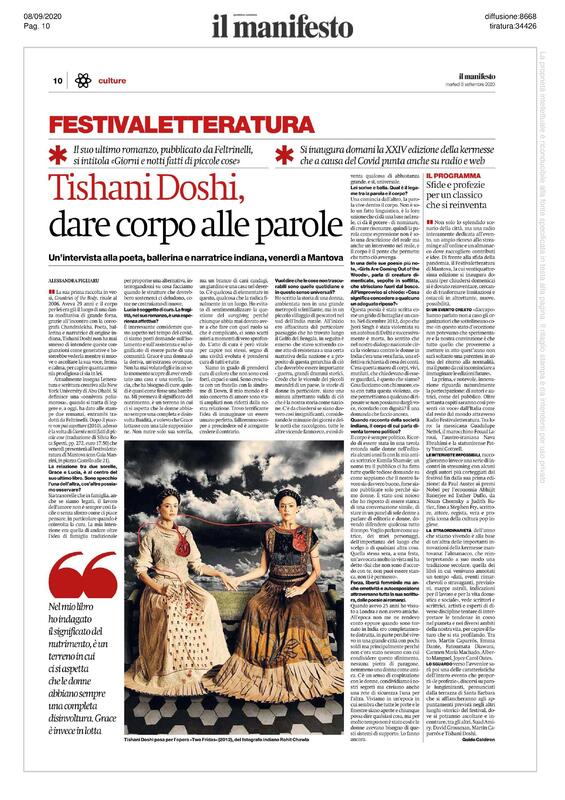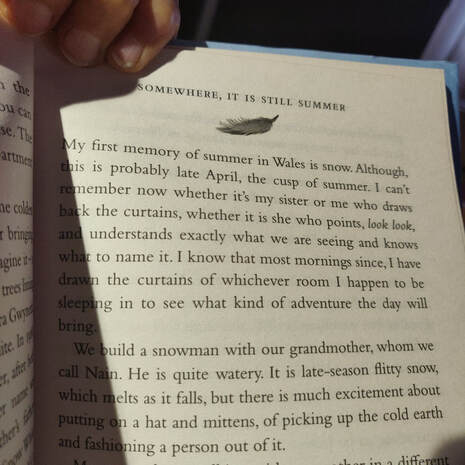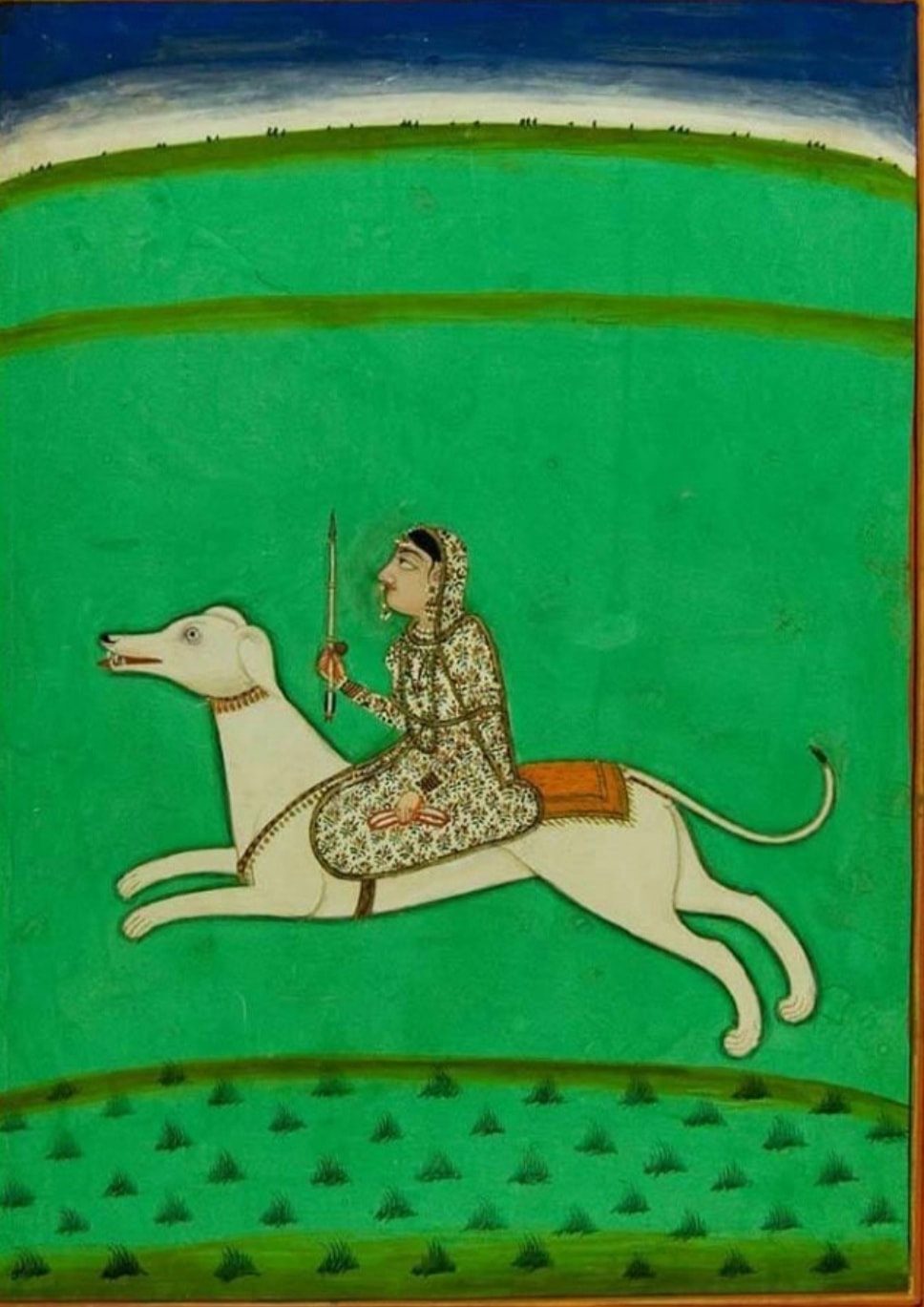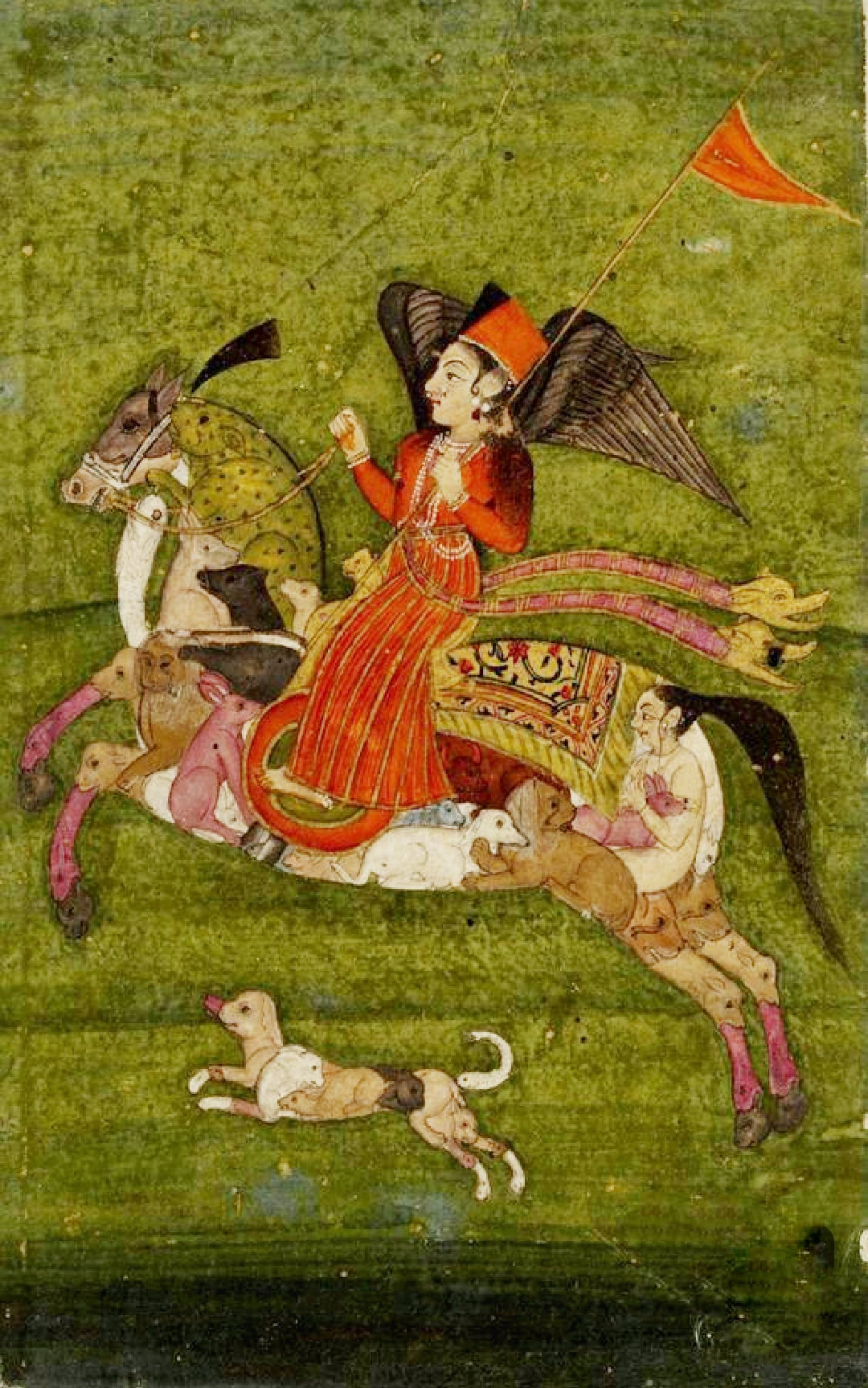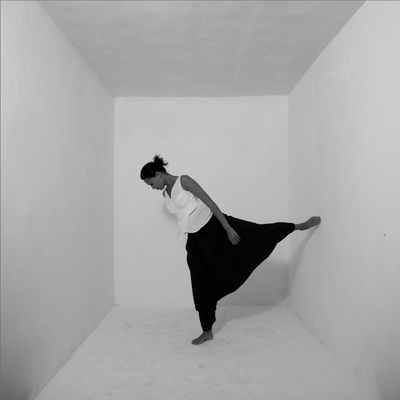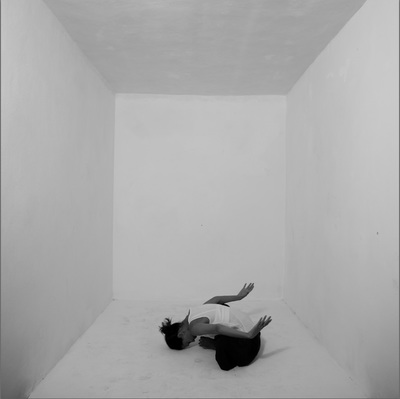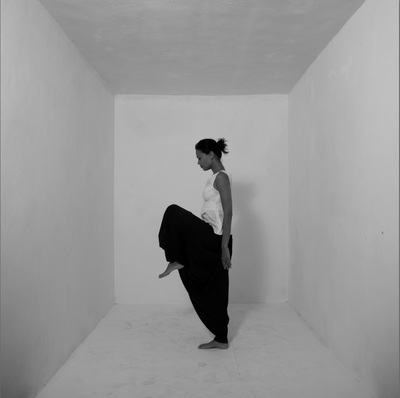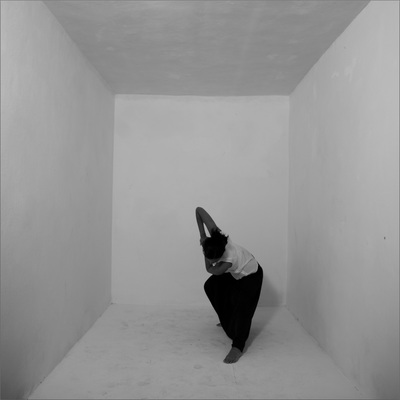SMALL DAYS AND NIGHTS IS TRANSLATED INTO FARSI BY KENAR PUBLISHERS
A GOD AT THE DOOR
IS NOW TRANSLATED INTO ITALIAN
BY ANDREA SIROTTI
PUBLISHED BY INTERNO POESIA
A GOD AT THE DOOR IS INCLUDED
IN THE BEST POETRY ROUNDUP OF 2021
BY THE GUARDIAN, THE TELEGRAPH AND WATERSTONES
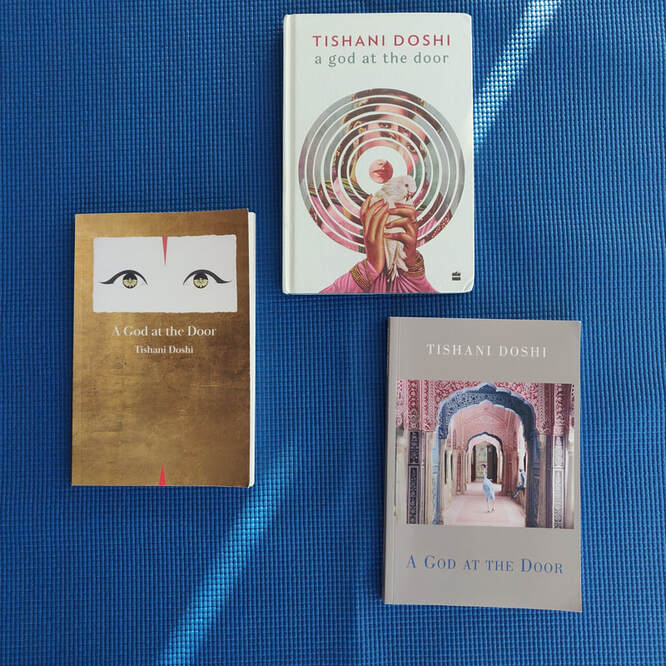
A generous mix of cosmic myth and earthy wit, Tishani Doshi’s fourth collection, A God at the Door, is wise and profound, with the lightest of touches."
-- RISHI DASTIDAR,
THE GUARDIAN
"A God at the Door brings mixed tidings: responses to harrowing events...but also strange disjunctions, offbeat humour, flashes of hope."
-- TRISTRAM FANE SAUNDERS,
THE TELEGRAPH
"Doshi brings complicated emotions to our geopolitical crises; her poems swerve from humorous to plaintive. Humanity, for Doshi, is full of contradiction, of despair coexisting with hope." -- EMILIA PHILLIPS, NYT
“...a dizzying and unflinching guide to the crises we face in our current age – personal, social, political. This is no catalogue of woes but a fantastic lyrical challenge in which all of the poet’s resources are utilized to cast light on places others may rather keep hidden.” – Poetry Book Society Bulletin
“This explosive book reads like a four-dimensional dance between the personal, the public, and the sacred, with the hidden fourth plan being the craft of poetry itself…Whether it’s a god, genocide, Sumo wrestler, a pair of Speedos, coronapocalypse, uterus, or hippopotamus, Doshi helps us enter the lives of others and connects us with our own.” Kit Fan, The Poetry Review
"Throughout A God at the Door, Doshi demonstrates where the divine is at work in the mundane, and places where the world severs the living from the divine. No, she is more specific than that. Doshi writes how humans destroy life, killing the divine inside others. This book’s gaze is global and copious. It moves from lost species to lost coasts to lives lost to gunfire in a maternity clinic in Kabul. But, the witness accompanies a fierce will toward survival. The language in A God at the Door is fiery and mesmerizing, as if sparked by something we might call the divine." Camille T. Dungy, Orion Magazine
"Packed with standout poems – dynamic, heartbreaking, full of colour and rage. I keep going back to it only to find more depths, more colours, the whole world’s in there!" Pascale Petit, The Poetry Society
"Doshi understands the way women are made both iconic and expendable." - Poetry Foundation & Poetry Magazine
"Doshi's most intense preoccupation in her poetic journey is with the survival of our planet and the shared vulnerability with other species that we face in its imminent destruction." -- Wasafiri This explosive book reads like a
A GOD AT THE DOOR
IS SHORTLISTED FOR THE
FORWARD PRIZE FOR POETRY 2021

"THESE POEMS DELVE INTO THE CONFLICTS BETWEEN DISASTER AND RENEWAL AND BETWEEN PAST AND PRESENT. THEY ARE TENDER ENQUIRIES RATHER THAN RESOLUTIONS."
- THE TLS
"THE POEMS OF TISHANI DOSHI'S A GOD AT THE DOOR OPERATE ON THE GRAND SCALE; REACHING FOR VISIONARY RESPONSES...STUNNING AND AMBITIOUS."
- THE GUARDIAN
"THROUGHOUT THE BOOK, THE POET SUMMONS THE SHAPE-SHIFTING POWERS OF POETRY AND TAKES TREMENDOUS RISKS WITH FORM, ALLITERATION, RHYME, HALF-RHYME AND COUNTER-RHYME TO CREATE A SYNCOPATED DOSHIESQUE MUSIC AS LIBERATING AS SAROJINI NAIDU'S AND AS CONTEMPLATIVE AS LOUISE GLÜCK'S."
- THE POETRY REVIEW
"HERE ARE SEARING POLITICAL POEMS WHICH RESPOND TO THE 'UNKNOWN TERRITORIES' OF THE WORLD ...AND CALL ON THE READER TO RECOGNISE THE EXISTENCE OF TRAUMA...HER ELOQUENT WRITING DEMONSTRATES AN ASTONISHING RANGE OF FREE VERSE SUFFUSED WITH BOTH PLAYFULNESS AND FURY."
- MSLEXIA
A God at the Door performs the difficult task of locating the body within the broader politics of state power and gender. Through it all, her voice remains clear as a bell, her hold over craft unwavering. Over and over, the poems pose the question: How does one return to the body when trapped in the systemic violence of structures designed to make you forget who you are?
- THE HINDU
|
|
|
|
|
|
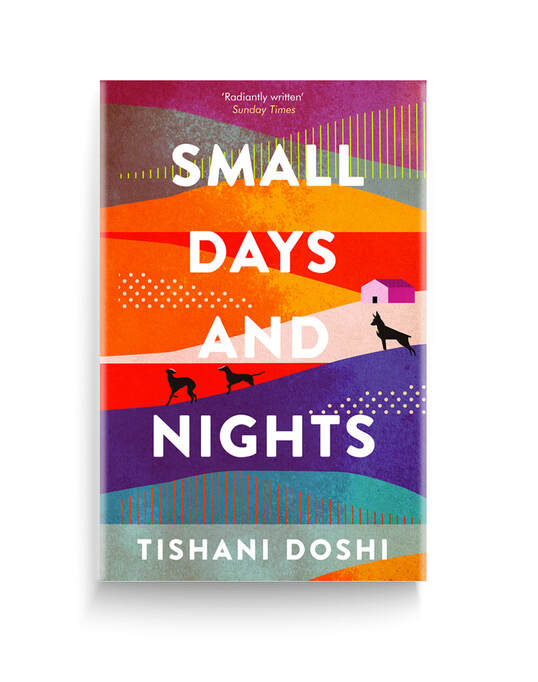
"Radiantly written, with a couple of interludes in Venice where Grace's father lives, this superb novel from Doshi (Orange-prize longlisted for The Pleasure Seekers) ranges over family secrets, trying to do the right thing, and the sheer contingency of life in all its richness and uncertainty."
THE SUNDAY TIMES
"Each page of this novel bears testament to her skills as inequality, secrecy and unhappiness harden into menace. Through a cycle of visits, returns and memories, Grazia must weather huge unease and bruising conflicts. Eventually, she finds strength and acceptance in this disturbing, deep and utterly extraordinary novel."
THE OBSERVER
As much about national as it is about familial belonging, this is a beautiful and angry book that challenges assumptions about what it means to be a woman, part of a family and part of a nation."
THE TIMES LITERARY SUPPLEMENT
THE SUNDAY TIMES
"Each page of this novel bears testament to her skills as inequality, secrecy and unhappiness harden into menace. Through a cycle of visits, returns and memories, Grazia must weather huge unease and bruising conflicts. Eventually, she finds strength and acceptance in this disturbing, deep and utterly extraordinary novel."
THE OBSERVER
As much about national as it is about familial belonging, this is a beautiful and angry book that challenges assumptions about what it means to be a woman, part of a family and part of a nation."
THE TIMES LITERARY SUPPLEMENT
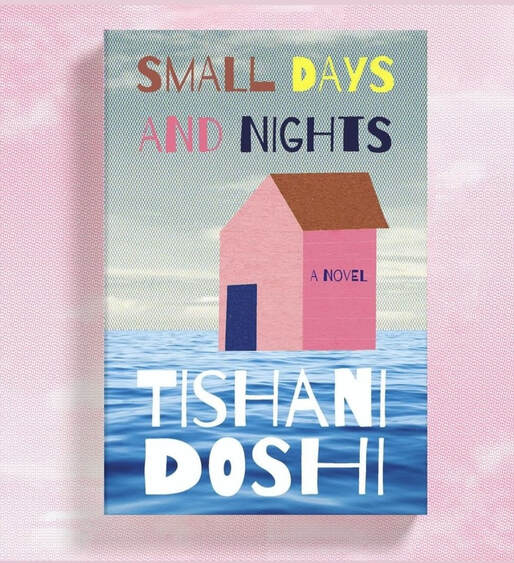
'Tishani Doshi brings all her skills as one of the world's best poets to this lovely, beguiling, brilliant novel. Run, don't walk to your nearest bookseller.'
GARY SHTEYNGART
***
‘This is a glorious book of immense power and beauty. I can’t stop thinking of Grace and Lucy and their band of dogs.’
KAMILA SHAMSIE
***
'Every sentence in this achingly beautiful book carries multiple meanings that resonate across the pages. Tishani Doshi uses language like a blade, cutting through our defenses to illuminate what it means to love, and forgive, and truly exist in the life we have.'
MAAZA MENGISTE
***
'A beautiful gem of a book full of heartbreak and joy. A deep exploration of what it is to be within family and what it is to occupy your own skin and the ebb and flow between the two.'
NAYOMI MUNAWEERA
Small Days and Nights has a beautifully restrained voice. I found myself reading it compulsively, drawn through the book on a knife edge. She manages humour in the saddest of moments, and tension in the quietest.’
EVIE WYLD, Jury of Ondaatje Prize
‘An astonishing novel that is beautifully written but underpinned by a quiet simmering anger about injustice and unrealistic expectations of a family – and of life in contemporary India.’
PETER FRANKOPAN, Jury of Ondaatje Prize
GIRLS ARE COMING OUT OF THE WOODS
PORTRAITS BY CARLO PIZZATI
DANCER IN A BOX
PORTRAITS BY RICCARDO CAVALLARI
PORTRAITS BY RICCARDO CAVALLARI

